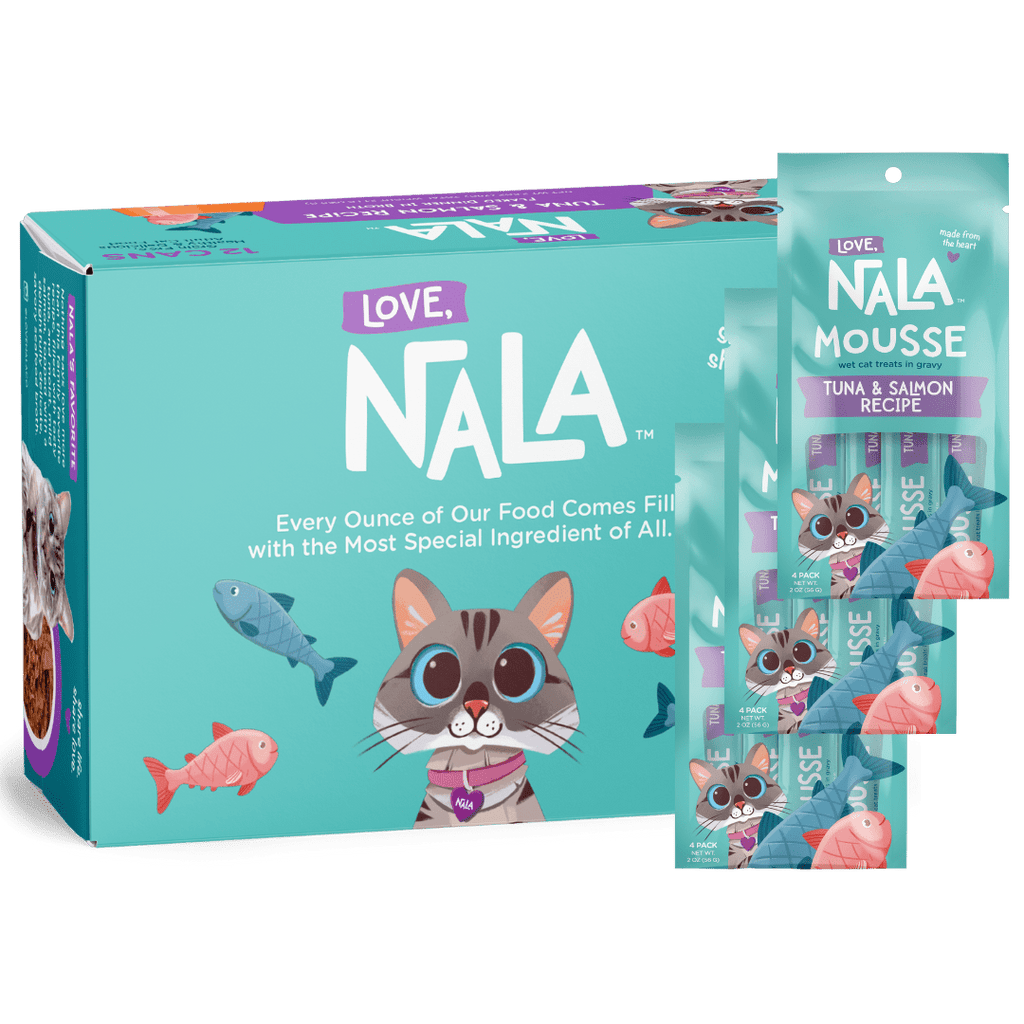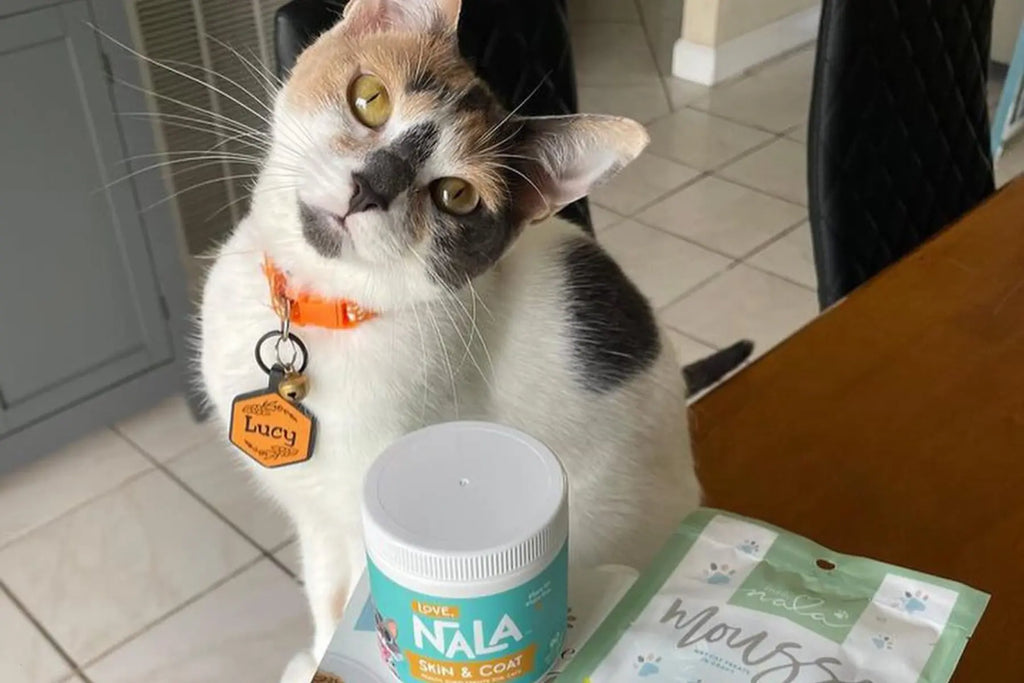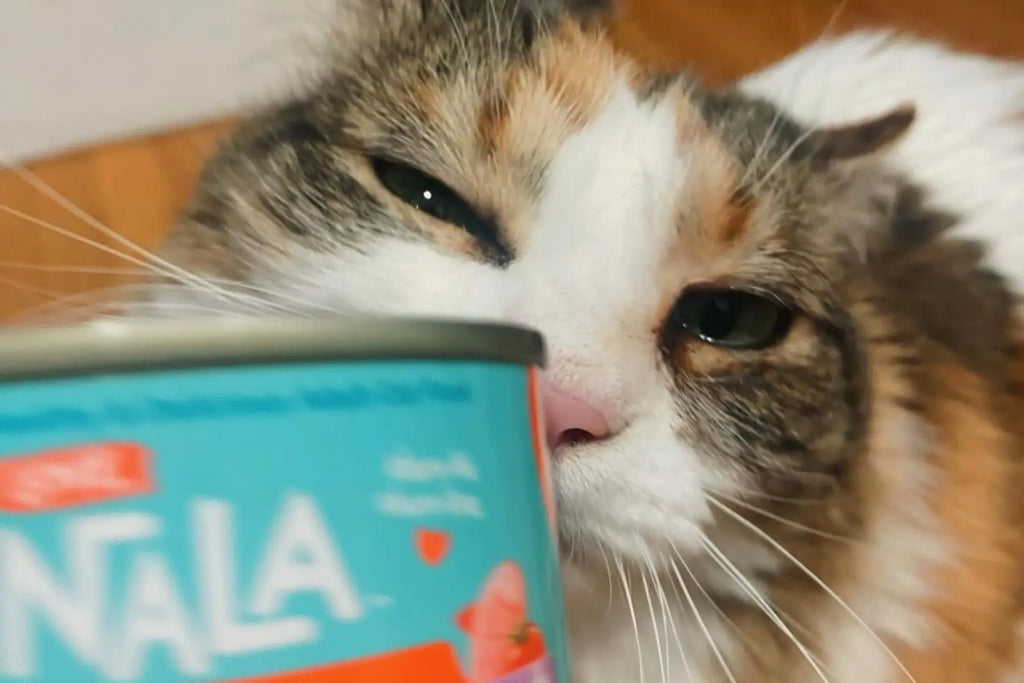Understanding what constitutes a balanced diet for a cat can be a challenge, as their nutritional needs differ significantly from ours. Cats require a diet high in protein, moderate in fats, and low in carbohydrates. They also need specific vitamins and minerals, such as taurine, which are essential for heart health and eyesight. This post will delve into the nuances of feline nutrition, including how to read cat food labels, the debate between wet and dry food, how to adjust your cat's diet as they age, and the importance of portion control and regular veterinary check-ups to ensure your cat's diet meets their health requirements.

Nutritional Requirements for Cats
A healthy feline diet, beyond merely being well-balanced, should be tailor-made to cater to the specific needs of cats at various life stages, such as kittens, adults, and seniors, each of which has unique nutritional demands. Kittens require a diet rich in protein and fat to support rapid growth and development, while adult cats benefit from a balanced diet that maintains their health and energy levels. Senior cats, on the other hand, may need diets with lower calories to prevent obesity, yet rich in fiber to aid digestion and absorption.
Essential Nutrients for Feline Health
When selecting the ideal diet for your feline friend, understanding the key components that should be present in their cat food is crucial. A balanced diet not only supports their overall health but also ensures they lead a happy, active life. Here are the essential nutrients every cat owner should look for:
- Protein: Protein is the cornerstone of a healthy cat diet, crucial for growth, maintenance, and tissue repair. High-quality cat food will list a recognizable animal protein source, such as chicken, turkey, or fish, as the first ingredient. This ensures that the food meets the cat's natural dietary requirements, providing all the essential amino acids they need.
- Fat: Fat is not just a primary energy source for cats; it also plays a key role in maintaining healthy skin and promoting a glossy coat. Look for cat foods with moderate levels of omega-3 and omega-6 fatty acids, derived from sources like fish oil or chicken fat, to support overall health and vitality.
- Carbohydrates: Although cats have a limited need for carbohydrates, a small amount can provide a useful energy source. High-quality cat foods will include easily digestible carbohydrates such as sweet potatoes or peas, avoiding grains and other fillers that can lead to weight gain and digestive issues.
- Vitamins and Minerals: A balanced diet for a cat should also include the right mix of vitamins and minerals. Key nutrients include vitamin A for vision, vitamin D for bone health, vitamin E for cell function, as well as calcium and phosphorus for strong teeth and bones. These elements support a cat's immune system and overall well-being.
Choosing the right cat food involves more than just picking any off the shelf. It's about understanding the nutritional content and how it aligns with your cat's specific health needs and life stage. Whether you opt for dry or wet food, ensuring that these critical components are present and correctly balanced is the key to fostering optimal health and longevity for your cat.
Health Effects of Poor Nutrition
Many cat owners are unaware of the specific dietary needs of their feline friends, leading to the selection of imbalanced or low-quality food options. This negligence can have detrimental effects on a cat's health, manifesting in various forms of illness and discomfort. Below are some of the health problems that can arise from not providing your cat with the right nutrients:
- Obesity: An increasingly common issue among domestic cats is obesity, which often stems from feeding them too many calories or a diet lacking balance. Obesity in cats can be a precursor to a slew of other health complications, such as diabetes mellitus and joint problems, including arthritis. When cats are overweight, their bodies are put under additional stress, making it difficult for them to engage in normal, healthy activities like running and jumping. This condition not only diminishes their quality of life but also shortens their lifespan.
- Diabetes: Cats fed a diet high in carbohydrates, especially those lacking in protein, can face a significant risk of developing diabetes. This metabolic disorder can severely impact a cat's health, necessitating lifelong treatment and management. High-carbohydrate diets disrupt the natural insulin regulation in cats, leading to elevated blood sugar levels. Managing a diabetic cat requires careful monitoring of their diet and, in some cases, insulin therapy, highlighting the importance of preventive nutrition.
- Kidney Disease: Another serious condition that can afflict cats due to poor dietary choices is kidney disease, particularly when their diet is high in phosphorus and low in essential proteins. Kidneys are vital for filtering waste from the blood and maintaining hydration; when they're damaged, it can lead to a gradual but irreversible decline in kidney function. Symptoms of kidney disease in cats include increased thirst and urination, weight loss, and lethargy. Since there's no cure for chronic kidney disease, prevention through a well-balanced diet is crucial.
Educating ourselves on the dietary needs of our feline friends is paramount. Selecting balanced foods tailored to their unique requirements is essential for promoting optimal health, preventing diseases, and ensuring they lead long happy lives. Understanding the nuances of cat nutrition can empower us to make choices that support their well-being and longevity.

Tips for Providing the Best Nutrition for Your Cat
Choosing the best nutrition for cats is a key aspect of keeping your feline friend healthy and happy. Here are some tips to help you provide your cat with the best nutrition possible:
Choosing a High-Quality Cat Food
Selecting a high-quality cat food is one of the most important aspects of providing good cat nutrition. Look for cat food that contains high-quality protein sources, with meat or fish listed as the first ingredient. Avoid cat food that contains fillers, by-products, or artificial additives.
Reading Ingredient Labels
Understanding the ingredients in your cat's food goes beyond just checking for protein content. It's about recognizing the source of the protein—identifying whether it's derived from high-quality animal sources or less desirable, by-product meals. Awareness of food allergies or sensitivities is crucial. Certain ingredients, even if they are high-quality, might not agree with your cat. Common allergens include certain proteins, grains, and artificial additives. By diligently reading ingredient labels, you can steer clear of potential allergens and avoid unnecessary discomfort or health issues for your pet.
Feeding Appropriate Portion Sizes
The appropriate amount of food for your cat significantly rests on their age, size, activity level, and even their metabolic rate, which varies from one cat to another. Kittens, with their rapid growth and high energy levels, require more food and more frequent feedings compared to adult cats. Conversely, senior cats, who tend to be less active, may need fewer calories to avoid weight gain. Another strategy to manage portion control is to utilize automatic feeders that dispense predetermined amounts of food at set times.
Offering a Variety of High-Quality Protein Sources
Offering a variety of high-quality protein sources is essential for providing a well-rounded diet for your cat. Look for cat food that contains a variety of protein sources, such as chicken, turkey, and fish.
Understanding Your Cat's Individual Dietary Needs
Cat's nutritional needs may vary depending on their health, age, and activity level. Consult with a veterinarian to understand your cat's individual dietary needs and create a balanced diet that meets those needs.
Feeding Considerations for Special Circumstances
Feeding considerations for special circumstances are important for ensuring that your cat receives proper nutrition. Here are some tips to keep in mind:
Nutritional Requirements for Cats with Health Conditions or Sensitivities
Cats with certain health conditions or sensitivities may require a special diet. For example, cats with kidney disease may need a diet that's low in phosphorus. If your cat is experiencing health issues or has specific dietary sensitivities, collaborating closely with a veterinarian becomes crucial to identifying the most appropriate diet that caters to their unique needs.
The process often starts with a thorough veterinary examination, possibly including blood tests and other diagnostics, to accurately diagnose your cat's condition. Based on the findings, the veterinarian can recommend a tailored diet plan. This plan may involve prescription diets formulated to manage specific health issues, such as low-protein diets or high-fiber diets. In addition to addressing health conditions, a veterinarian can also help with weight management, ensuring your cat receives a balanced diet that meets their energy requirements without leading to obesity.
Working with a veterinarian ensures that your cat’s diet is not only tailored to their current health condition but also adjusted as their needs change over time. This proactive approach to dietary management can significantly improve your cat’s quality of life, enhance their overall health, and potentially extend their lifespan. The partnership between you and your veterinarian is a cornerstone of providing the best care for your feline friend, ensuring their nutritional needs are met with precision and care.
Tips for Transitioning to a New Diet or Introducing New Foods
Introducing new foods or transitioning your cat to a new diet is an endeavor that requires patience and understanding of your cat's dietary needs and preferences. Cats are creatures of habit, and many develop strong preferences for their usual food. Abrupt changes can lead to refusal to eat, gastrointestinal upset, or stress. To mitigate these issues and ensure a smooth transition, a gradual introduction of the new food is recommended. Begin the transition by mixing a small amount of the new food with the old food in your cat's bowl. Initially, the new food should make up a small proportion of the meal—approximately 25%—with the remaining 75% being the familiar food. This blend helps acclimate your cat's taste buds and digestive system to the new diet without causing undue stress or rejection.

Over several days or even a week, gradually increase the proportion of the new food while decreasing the amount of the old food. This slow adjustment period allows your cat's digestive system to adapt to the new ingredients and nutrient levels, reducing the likelihood of diarrhea, vomiting, or other digestive issues. Some cats may resist change and require a more prolonged transition period. Paying attention to your cat's appetite, behavior, and any signs of gastrointestinal discomfort is essential to measure their reaction to the new diet.
Providing the best nutrition for your cat is essential for their overall health and well-being. Grasping the intricacies of your cat's nutritional needs and opting for high-quality food are pivotal steps in warding off health issues and paving the way for a vibrant, long life. Incorporating the guidance provided here and seeking regular consultations with a veterinarian is crucial in tailoring a diet that suits your cat's individual needs. By committing to these principles, you'll not only nourish their body but also enrich the bond you share, looking forward to countless joyful moments together. This journey of mindful feeding will undoubtedly contribute to their well-being, allowing you to cherish a fulfilling life side by side with your beloved feline friend.




















